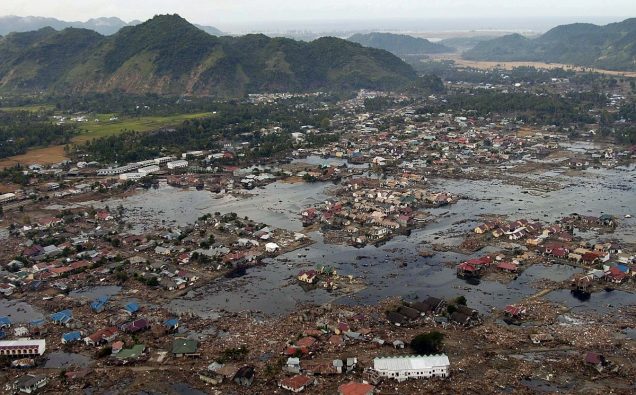
Amid terrifying images of destruction and fires in the Ukraine war, advocates of a cleaner planet heard a chilling account of what the world could happen in the face of human-induced climate changes.
A widespread disruption in nature could expose people and the ecosystems to disastrous consequences.
The UN Intergovernmental Panel on Climate Change (IPCC), approved by 195 member states, warned in a new report that minor, reactive or incremental changes are no longer sufficient to tackle the climate emergency.
“This report is a dire warning about the consequences of inaction,” Hoesung Lee, Chair of the Panel, told UN delegates.
“It shows that climate change is a grave and mounting threat to our wellbeing and a healthy planet. Our actions today will shape how people adapt and nature responds to increasing climate risks,” he noted.
“Half measures are no longer an option.”
Second, in a series of three reports from the UN’s top climate scientists, the report’s launch comes just over 100 days since the UN climate action summit in Glasgow, COP26, agreed to step up action to limit global warming to 1.5°C and stave off the worst effects of climate change.
The United States, China, India – which consume 54 percent of the world’s fossil fuel – and major industrialized nations, seen as the largest polluters of the environment, are under pressure to act swiftly to stem the rot, and shift to adapt cleaner energy options.
President Joe Biden, who has made the climate crisis a priority for his administration, faced criticism last week for not laying out the specifics in his State of the Union address to deal with the climate crisis. He mentioned the issue a couple of times but activists say he should have drawn sharp attention to the existential crisis.
At the United Nations, Secretary-General Antonio Guterres called the first report, issued last August, a “code red for humanity”, and said that “If we combine forces now, we can avert climate catastrophe.”
His take on the latest report is equally stark: he laments that the evidence detailed by IPCC is unlike anything he has ever seen, calling it an “atlas of human suffering and a damning indictment of failed climate leadership.”
With fact upon fact, this report, which focuses on impacts, adaptation, and vulnerability, reveals how people, and the planet, are getting “clobbered” by climate change.
“Nearly half of humanity is living in the danger zone – now. Many ecosystems are at the point of no return – now. Unchecked carbon pollution is forcing the world’s most vulnerable on a frog march to destruction – now,” he declared.
Guterres said the world’s biggest polluters are “guilty of arson of our only home”.
Scientists argue that limiting the global temperature rise to 1.5 degrees demands the world cut emissions by 45 percent by 2030 and achieve net-zero emissions by 2050.
Scientists assess the impacts of climate change and the importance of adaptation in cities, and urban areas, where more than half the world’s population lives.
Overall, the report, which provides extensive regional information to enable Climate Resilient Development, underlines the urgency for climate action, focusing on equity and justice.
Among the key imperatives, the report highlights the need for adequate funding, technology transfer, political commitment, and partnership that may together lead to more effective climate change adaptation and emissions reductions.

















